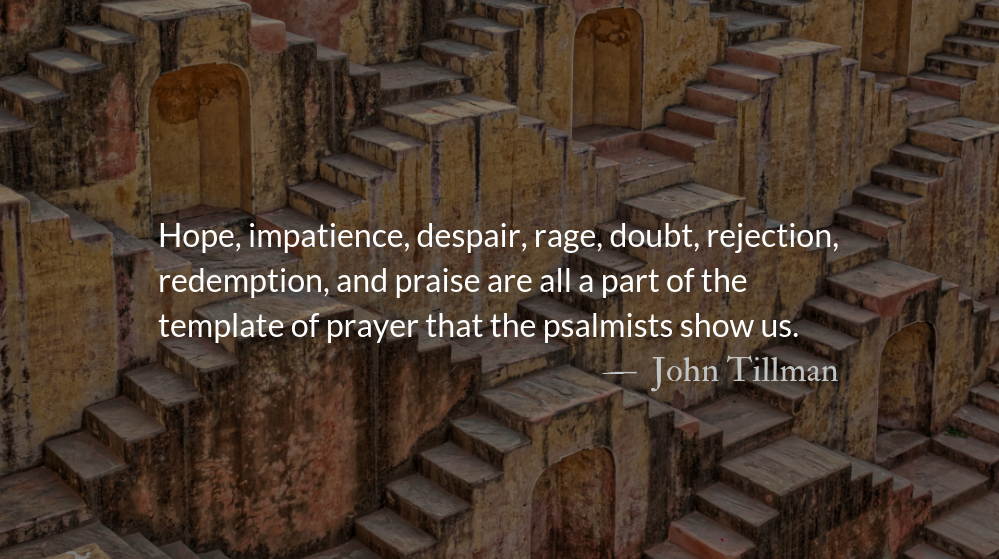Scripture Focus: Joel 2.30-32
30 I will show wonders in the heavens
and on the earth,
blood and fire and billows of smoke.
31 The sun will be turned to darkness
and the moon to blood
before the coming of the great and dreadful day of the Lord.
32 And everyone who calls
on the name of the Lord will be saved;
for on Mount Zion and in Jerusalem
there will be deliverance,
as the Lord has said,
even among the survivors
whom the Lord calls.
Acts 2.21
21 And everyone who calls on the name of the Lord will be saved.
Romans 10.13
13 for, “Everyone who calls on the name of the Lord will be saved.”
Reflection: Hope Consuming Darkness
By John Tillman
An unstoppable army advances like fire, burning and devouring everything in its path. Cultivated land like the Garden of Eden becomes a barren desert waste.
Witnesses describe the sound of locusts feeding on crops and trees as a crackling fire. Joel used the recent trauma of a plague of locusts to warn of future disasters. “Did you see this insect army ravage the land? There are greater ravagers on the way.”
Some faith leaders today refer to Joel, using recent disasters to terrify and manipulate. But Joel also promised salvation, both in the moment and an ultimate future restoration.
The destruction Joel described was caused by sin. Its solution was returning to the Lord in repentance. Sin is not just individual actions, like one bug crawling in our kitchen, but societal swarms that plague the earth—a consuming darkness. We’ve all experienced the ravages of sin in our personal lives, our communities, and the world. We’ve seen Edens become wastelands.
Peter and Paul knew darkness, and both read Joel not as terrifying but as hope in the midst of darkness that is ultimately fulfilled in Jesus. Peter quoted Joel in his first sermon, ending with, “Everyone who calls on the name of the Lord will be saved.” (Acts 2.14-21) Paul also picked up on this promise, repeating the ending quote of Peter’s sermon, “Everyone who calls on the name of the Lord will be saved.” (Romans 10.13)Jesus is our salvation, both in the moment and in an ultimate future restoration. There may be darkness ahead and sin in our past or future. Like Peter or Paul, we may have betrayed or persecuted Christ. (Matthew 26.72-74; Philippians 3.6) We may have resorted to or endorsed violence. (John 18.10; Acts 7.57-58) We may have been ashamed and humbled. (Luke 22.61-62; Acts 9.3-5) But everyone who calls on the name of the Lord will be saved.
What darkness has eaten at you? Blocked out the light? Settled on your fields? Obscured your hope?
We will not be lost in consuming darkness. The consuming darkness will be consumed by hope.
No matter how dark it gets, everyone who calls upon the name of the Lord will be saved.
No matter how frightening it feels, everyone who calls upon the name of the Lord will be saved.
No matter if we die, everyone who calls upon the name of the Lord will be saved.
Everyone who calls upon the name of the Lord will be saved.
Divine Hours Prayer: The Call to Prayer
Be strong and let your heart take courage, all you who wait for the Lord. — Psalm 31.24
– From The Divine Hours: Prayers for Summertime by Phyllis Tickle.
Today’s Readings
Joel 2 (Listen 5:26)
Matthew 19 (Listen 4:04)
Listen to Apotheosis of Politics on the Pause to Read podcast
As traditional religion declines, politics is the newest, fastest-growing religion.
Read more about Unprecedented
In response to unprecedented times, Joel encourages the people to enter into a time of unprecedented prayer and repentance.








